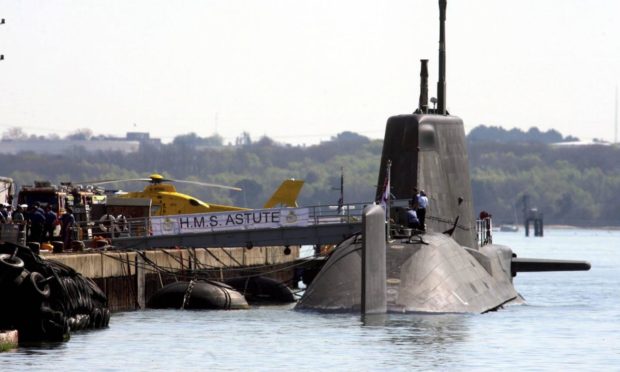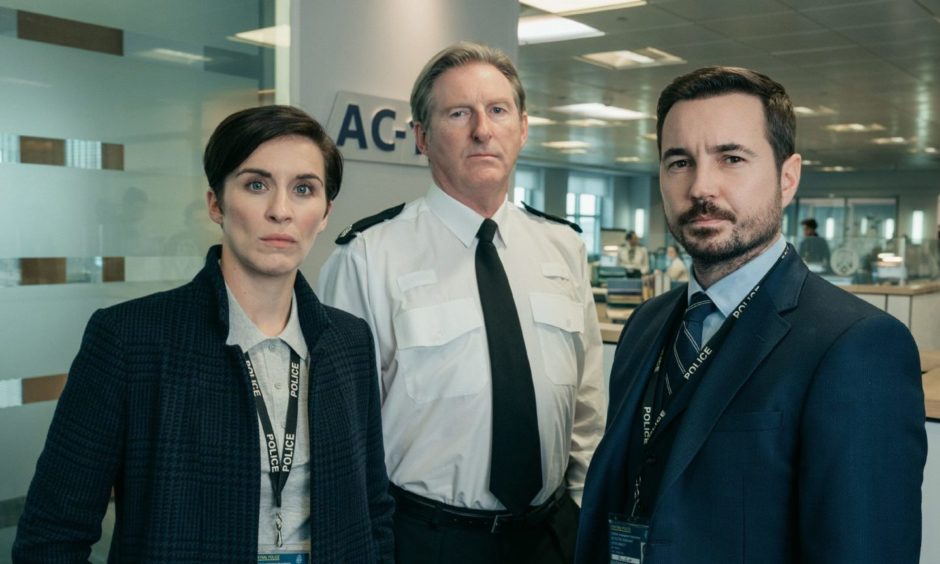I’ll always remember the night I was at the helm when a Royal Navy nuclear submarine grounded off Skye.
It’s not the sort of thing you are likely to forget in a hurry, is it?
I often wondered how I might react in a life or death crisis.
Musing along this theme, I also recalled a sci-fi film with a stomach-churning space walk by astronauts carrying out emergency repairs. Watching it, I just knew that if I was one if those astronauts I would drop my life-saving B&Q screwdriver clumsily into space to orbit for eternity.
By now you’ve probably guessed that I was not really aboard the newly-commissioned HMS Astute as it grounded during sea trials. But I was at the helm of the good ship P&J that night or, to be more precise, the paper’s news operation.
Hold the front page
News broke of the sub’s catastrophic miscalculation shortly before our Highland edition was due to print – and a big decision had to be made.
Yes, it really was time to shout: “Hold the front page!”
This tricky call can torpedo delivery schedules, but it was vital to get the news onto page one for the next morning. It was worth it because the sight of a fearsome submarine stranded on the surface of Highland waters was a huge safety story.
A fraught relationship already existed between fishing communities and prowling submarines, which had tangled in boat nets with tragic consequences. Helpless fishing boats were dragged for miles or even pulled under.
This drama was resolved, but what happened next to HMS Astute might have led to crews in bygone naval days whispering she was jinxed.
Within six months, a sailor triggered horror on board while she was in dock, shooting an officer dead and wounding another. A George medal for gallantry was awarded to the local council leader, who was on board at the time and helped overpower him.
HMS Vigil drama will no doubt take inspiration from real events
These dramatic incidents came to mind instantly as I read teasers for a new BBC One drama from the producers of Line of Duty. Vigil is to be screened later this year and features Scots Line of Duty star, Martin Compston.
Real life emotions were sensitive over submarine incidents involving fishing crews around British and Irish coasts
A brief synopsis sets the scene: police investigate a murder on board a Trident nuclear submarine called HMS Vigil as mystery surrounds the disappearance of
a Scottish trawler. Tensions between police, Royal Navy and security services surface.
It sounds familiar, doesn’t it? I won’t be surprised if writers have drawn heavily from these real life incidents.
After all, the last Line of Duty series attracted record viewers, but was even more convincing by using real tragedies as inspiration – such as the murder of an investigative journalist, and the Stephen Lawrence case.
OK, I know the final episode was blasted for a lukewarm climax when arch villain “H” was unmasked.
One enraged viewer fumed that the corrupt criminal mastermind was only “a bumbling Brummie” detective. As a proud bumbling Brummie, I think I should take exception to that remark, even although I have lived in these parts for three decades.
But truth is stranger than fiction and a bottomless well of inspiration for thriller writers.
Real life emotions were sensitive over submarine incidents involving fishing crews around British and Irish coasts.
The Aberdeenshire-built fishing boat Antares lost all four crew in the Firth of Clyde. She became entangled with nuclear “hunter-killer” submarine HMS Trenchant, which was on a training mission. In other cases, Russian submarines – possibly involved in secret cat and mouse chases with the Royal Navy – have been suspected.
Lapses in memory always hamper public inquiries
I could be way off beam, but I have a feeling issues about state secrecy and public accountability will be at the heart of that new TV thriller.
As recently as five years ago, the Royal Navy was criticised by investigators for lack of cooperation over such inquiries – and failing to learn lessons from Antares.
One of the major problems with any public inquiry long after the event is pinning blame on those who deserve it amid a sea of contradiction or evasion and “memory lapses”. The UK Covid public inquiry will face similar challenges when the day of reckoning comes over scandals such as how infected old people were released from hospital into care homes in Scotland.
As for Vigil, there might be more at stake in the final episode than an uninspiring climax, as befell Line of Duty.
HMS Vigil could churn Scottish emotions in its wake, involving memories over real rather than imagined grief and lingering fears among fishing crews.
David Knight is the long-serving former deputy editor of the Press and Journal



